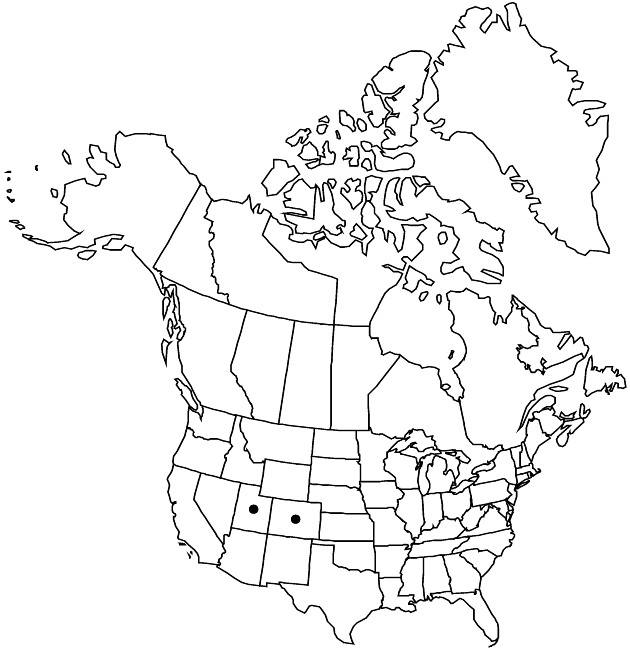Erigeron kachinensis
Proc. Utah Acad. Sci. 45: 231. 1968.
Perennials, 6–18 cm; tap-rooted, caudices branches relatively short or long, sometimes relatively thick. Stems usually decumbent to ascending, (bases greenish) glabrous, eglandular. Leaves basal (persistent) and cauline; basal (bases greenish) blades oblanceolate to obovate or spatulate (often folding), 13–50 × 2–13 mm, cauline reduced distally, margins entire, faces glabrous, eglandular. Heads 1–4. Involucres 3.2–4 × 5–6 mm. Phyllaries in 2–3 series (often purplish, at least at tips, erect, apices appressed), glabrous, minutely glandular. Ray florets 10–15; corollas white or pinkish, 3.5–5.5 mm, laminae reflexing. Disc corollas 2.6–3 mm. Cypselae 1.8–2 mm, 2-nerved, faces sparsely strigose; pappi: outer of setae, inner of 12–14 (stramineous, dull) bristles.
Phenology: Flowering Jun–Aug.
Habitat: Seeps, springs, wet sandy soils and sandstone crevices, often in hanging gardens, aspen, ponderosa pine
Elevation: 1400–2600 m
Distribution

Colo., Utah.
Discussion
Of conservation concern.
Erigeron kachinensis is in the Center for Plant Conservation’s National Collection of Endangered Plants.
Selected References
None.